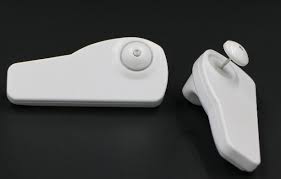
Within the dynamic retail sector, it is crucial to maintain accurate inventory levels to ensure customer satisfaction, minimize losses, and optimize supply chain efficiency. Traditional inventory management methods often fall short, leading to discrepancies, shrinkage, and inefficiencies. Enter RFID (Radio Frequency Identification) technology—a game-changer that promises near-perfect inventory accuracy. Let’s dive into the impact of RFID technology on achieving precise inventory levels, minimizing shrinkage, and optimizing stock-taking processes in the retail industry.
The Role of RFID Technology in Achieving Near-Perfect Inventory Accuracy
RFID clothing tags use radio waves to identify and track tags attached to items automatically. Unlike barcodes requiring line-of-sight scanning, RFID tags can be read from a distance and in bulk. This feature alone transforms inventory management.
Enhanced Data Capture
RFID technology offers the capability for the simultaneous scanning of multiple items, resulting in a significant reduction in the time and labor required for inventory checks. Retailers can quickly and accurately capture data on each item, ensuring real-time inventory updates. This leads to improved inventory accuracy and minimizes the risk of human error.
Real-Time Inventory Tracking
With RFID, retailers can achieve real-time visibility of their inventory. Every tagged item is continuously tracked as it moves through the supply chain, from the warehouse to the store floor and finally to the customer. This real-time tracking ensures that inventory levels are always up to date, helping retailers make informed decisions on restocking and merchandising.
Reducing Shrinkage with RFID Technology
Shrinkage, caused by theft, administrative errors, or supplier fraud, is a significant issue in retail, leading to substantial financial losses. RFID technology addresses this problem by providing enhanced security and transparency.
Theft Prevention
RFID tags act as a deterrent to theft. Integrated with security systems, these tags trigger alarms when an unauthorized removal of items is detected. This real-time alert system not only prevents shoplifting but also helps in recovering stolen goods more efficiently.
Error Reduction
Administrative errors, such as incorrect data entry or misplaced items, contribute to inventory shrinkage. RFID technology automates the data capture process, reducing the likelihood of such errors. The automation ensures that the inventory records are accurate and reflect the actual stock levels.
Supplier Verification
RFID tags enable retailers to verify shipments from suppliers more efficiently. By scanning the tags on delivery, retailers can quickly confirm that the received items match the purchase order, thus preventing supplier fraud and ensuring that the inventory records are accurate from the point of receipt.
Streamlining Stock-Taking Processes
Traditional stock-taking methods are labor-intensive and time-consuming, often requiring stores to shut down for manual counts. RFID technology streamlines these processes, making them faster, more efficient, and less disruptive.
Faster Stock Counts
With RFID, stock-taking can be done quickly and without disrupting normal store operations. Retailers can scan all tagged items in a matter of minutes, compared to hours or days required for manual counting. This speed not only saves time but also reduces labor costs associated with inventory checks.
Continuous Inventory Audits
RFID technology enables continuous inventory audits, allowing retailers to perform regular, accurate inventory checks without halting operations. This continuous auditing ensures that inventory records are always current and accurate, helping retailers maintain optimal stock levels and reduce the risk of stockouts or overstocking.
Improved Inventory Management
Streamlined stock-taking processes lead to better inventory management. Retailers can quickly identify discrepancies and address them before they become significant issues. This proactive approach helps in maintaining accurate inventory levels, improving stock availability, and enhancing overall customer satisfaction.
Conclusion
RFID clothing tags are revolutionizing inventory management in retail. By providing enhanced data capture, real-time tracking, and streamlined stock-taking processes, RFID technology significantly improves inventory accuracy. It also reduces shrinkage through theft prevention and error reduction while enabling faster, more efficient stock counts. The result is a more efficient supply chain, optimized stock levels, and improved customer satisfaction. As retailers continue to adopt RFID technology, they are likely to see substantial benefits in terms of inventory accuracy, operational efficiency, and overall profitability.
Incorporating RFID technology into retail operations not only enhances inventory management but also positions retailers to better meet the demands of today’s competitive market. The future of retail lies in the ability to manage inventory accurately and efficiently, and RFID clothing tags are a critical tool in achieving this goal.







